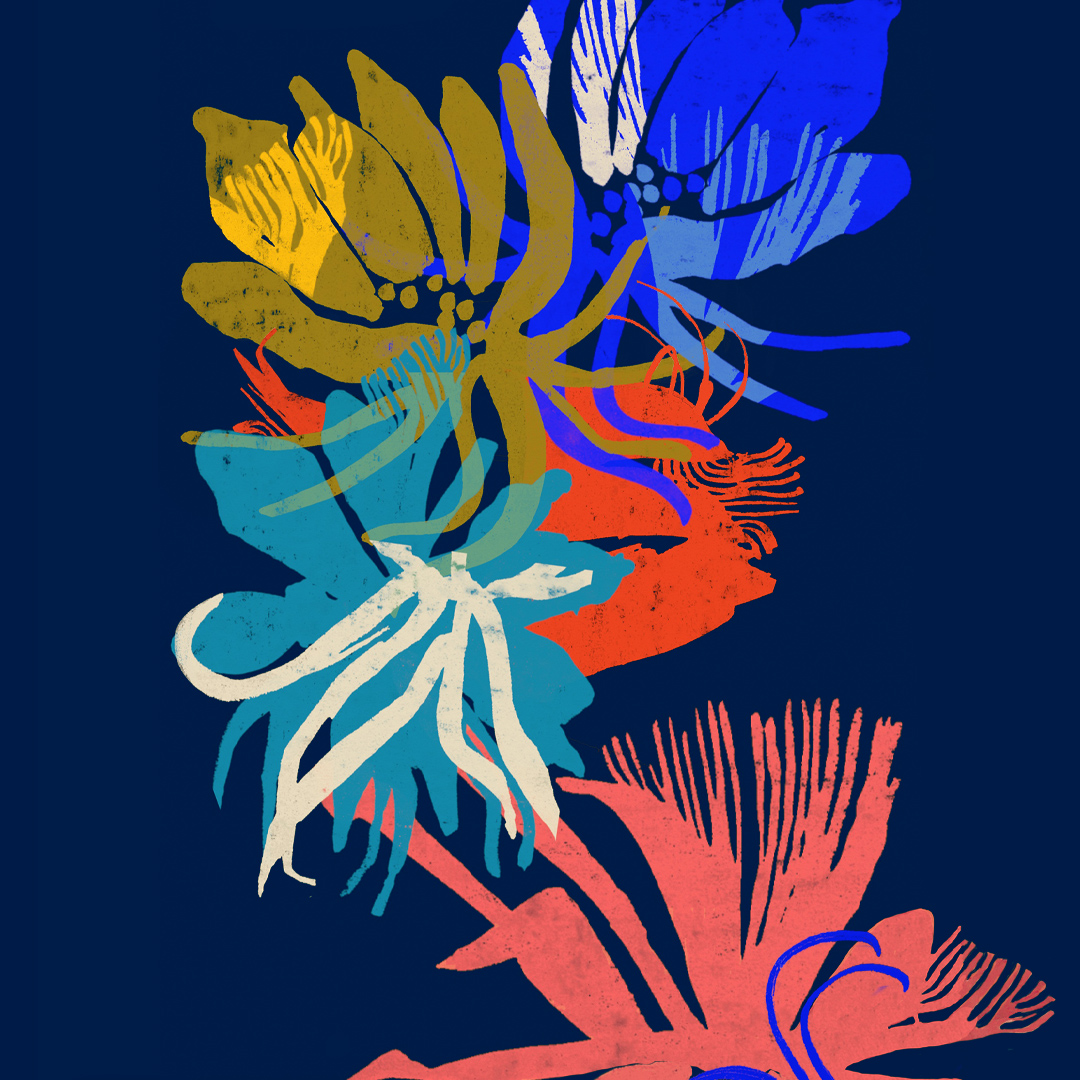Read an excerpt of Lucky Turtle by Bill Roorbach
 Happy book birthday to Lucky Turtle by Bill Roorbach! To celebrate, we’re sharing an excerpt of this big-hearted novel. Part coming-of-age, part love story, Lucky Turtle is out today, and tells the story of Cindra and Lucky.
Happy book birthday to Lucky Turtle by Bill Roorbach! To celebrate, we’re sharing an excerpt of this big-hearted novel. Part coming-of-age, part love story, Lucky Turtle is out today, and tells the story of Cindra and Lucky.
Sixteen-year-old Cindra Zoeller is sent to a reform camp in Montana after being involved in an armed robbery. At Camp Challenge, she becomes transfixed by Lucky, a camp employee of mysterious origin—an origin of constant speculation—and the chemistry between them is instant, and profound. The pair escape together into the wilderness to create an idyllic life far from the reach of the law, living off their resounding love, Lucky’s vast knowledge of the wilderness, and a little help from some friends. But they can run from the outside world for only so long, and the consequences of their naïve fantasy of a future together—and circumstances shaped by skin color—will keep them apart for decades.
Page-turning, full of vivid characters, delicious suspense, and ultimately joy, Lucky Turtle is a big-hearted, deeply engrossing love story from one of our most entertaining and perceptive writers. Keep reading for a first look at this stunning novel.
Chapter One
I am Cindra Zoeller. I was born in 1982, in Watertown, Massachusetts, outside Boston. I wrote a report in fifth grade so I know Massachusetts is an Algonquian name meaning big little hills. I grew up there sledding the biggest of the little hills and skating on millponds and swimming in the lakes and rivers and the ocean with the other kids, though rarely with my sister, who was much older and mocked my love of the great outdoors, sat home reading, and I will never mention her again. I adored my father, who was a cabinetmaker, or when business was bad, a roofer. He hated roofing. My mother and I did not get along. She broke my ankle once by accident (but in a rage) and did not take me to the doctor. And then, when I was sixteen, I got in trouble.
There, that was fast.
My actual life begins with meeting Lucky, is why I’m hurrying.
Chapter Two
I guess let’s start with the hearing. April Fool’s day, 1999. Old Watertown Congregational Church, yours truly seated at the head of the immense table in the sacristy, view of God’s Acre patched with snow and daffodils, all around me concerned adults: Reverend Turtman (pale, scrawny little twerp with glasses—we kids called him Turdman and took advantage of his good nature), and Mother and dear Pops, and Mr. Hightower, the principal of Watertown High, also Mrs. Small, the vice principal and chief disciplinarian (we called her Mister Large). And the lawyer, our lawyer, our criminal lawyer, a distinguished Black man named Mr. Burnett, from a big firm in Boston proper. And Judge Pernal, luckily Pop’s golfing pal, Caucasian person tanned to a crisp from his annual Florida trip, several shades darker than Mr. Burnett, whom he clearly looked down upon. Finally Miss Elegant (her actual name, and actually an elegant, if ineffectual, soul), my only ally, my guidance counselor.
It was she who started the proceedings: “Let’s all think how we can be of service to Cindy.”
“Cindra,” my mother said.
“Be of service?” said Mrs. Small. She fairly trembled with indignation.
“You’re clear on what you’ve done?” Judge Pernal said.
“Yes,” I said meekly. “And I’m very sorry for it.”
“Your friend Dagoberto Murua will get twenty years,” he said.
“I’m aware,” I said. Lawyer Burnett had coached me: “And I agree that he deserves it.”
“Not Cindra’s friend,” Mr. Burnett said sternly. “Her abuser.”
“You were taken advantage of,” Pops said sweetly.
“Very much so,” said Miss Elegant.
“No, I take responsibility,” I said.
Both Mr. Burnett and Judge Pernal nodded at that. Clearly, unlike my Puerto Rican co-defendants, I was on the right track, headed for rehabilitation and an eventual return to society. Also, as no one was saying, I was white.
“Armed robbery,” my mother said. “Assault with a deadly weapon!” She had been repeating this phrase for weeks.
My father said, “Mother.”
Judge Pernal cleared his throat, a man of little drama, chilly gaze. “And Mr. Murua’s brother, Guillermo,” Giller-mo, he pronounced it. “You’re aware that for his role he’s going to Cutler until he’s seventeen, then to State, likely ten years total.”
“Aware,” I said. Cutler School for Boys, that hellhole, famous for cruelty.
“And that something similar could very easily be your fate.”
“I’m aware. Very much so.”
Judge Pernal gave me a long look, the very look of justice. “But we do agree that your role in the incident was less than intentional. You held no weapon. You called for an ambulance.”
“Hours later,” said Vice Principal Small.
“Saving two lives,” Pops said.
“Having jeopardized those lives,” said Vice Principal Small.
“A fine girl,” said Miss Elegant. “All that sunny blond hair.”
“Let us stay on track,” said Mr. Burnett.
The judge said what everyone already knew he was going to say. That he was saying it in church rather than in his courtroom meant I would avoid having the felony on my record. He read from a handwritten document, tapped the table to accent each item: “We remand you to Camp Challenge in the town of Elk Creek, Montana, voluntary enrollment. No parental contact for the first of the three years, quarterly for the second year, monthly after that. A full courtroom trial if the camp administration is not happy with your progress or you leave those premises for any reason. At Camp Challenge you will pursue and complete your high school certificate, accelerate your religious studies, investigate college options, and begin to make financial amends to the victims of your associates. Release on your eighteenth birthday with no conditions provided you are enrolled at a four-year college. All Camp Challenge fees and tuition to be paid by your parents, repaid by you at a later date, as per agreement.”
Pops wept, the only one.
“Armed robbery,” my mother repeated.
“Criminal mischief,” said Mr. Burnett to correct the record: a deal was a deal.
“A very adventurous young lady,” said Miss Elegant, elegantly.
“Monday,” said the Judge.
Reverend Turtman cleared his throat, said, “In Jesus’s name, let us pray.” The mercifully assembled bowed their heads. My father and I hesitated, slight grins as our eyes met and Reverend Turtman began. Finally Pops sighed, bowed his head, first I’d ever seen. Not me. I got an image of vast plains in my head, of snow-capped peaks, of dauntless Blackfeet and Crow and Oglala and Miniconjou warriors on horseback, coup sticks held high. Delusions, in other words. I’d read up extensively on Camp Challenge and on Montana history in the months since the deal had been struck and I was ready to put trouble and all these dour adults behind me and start in on what seemed an adventure, nothing a prayer would change.
Lucky Turtle is out now! Buy your copy today.




